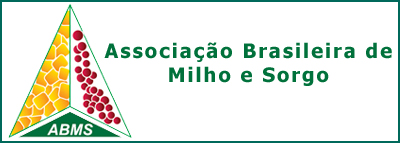POLYPHASIC CHARACTERIZATION OF Bacillus STRAINS ISOLATED FROM MAIZE
DOI:
https://doi.org/10.18512/rbms2020v19e1190Palavras-chave:
Bacillus, molecular fingerprinting, plant growth-promoting, Zea mays L.Resumo
The use of bioinoculants with plant growth-promoting bacteria (PGPB) is a sustainable agricultural practice that has been expanding worldwide. Thus, it is fundamental to characterize these bacteria molecularly to provide better security and traceability for bioinoculants production. This work aimed to identify, characterize and develop specific molecular markers for Bacillus strains related to plant-growing promotion. Five strains were identified as B. pumillus (B32), B. thuringiensis (B116), B. megaterium (B119) and B. subitilis (B2082 and B2084) using 16S rRNA gene sequencing and MALDI-TOF mass spectrometry. Repetitive element palindromic (Rep-PCR) and amplified ribosomal DNA restriction analysis (ARDRA) techniques allowed the discrimination of the strains, except B2082 and B2084 that presented identical genetic profiles, indicating that they are same or genetically close isolates. Moreover, specific molecular markers were developed for B116 and B119 strains and may be used for microbial inoculants production quality control, strains traceability and to detail PGPB colonization.
Downloads
Publicado
Como Citar
Edição
Seção
Licença
Autores que publicam nesta revista concordam com os seguintes termos:- Autores mantém os direitos autorais e concedem à revista o direito de primeira publicação, com o trabalho simultaneamente licenciado sob a Creative Commons Attribution License que permitindo o compartilhamento do trabalho com reconhecimento da autoria do trabalho e publicação inicial nesta revista.
- Autores têm autorização para assumir contratos adicionais separadamente, para distribuição não-exclusiva da versão do trabalho publicada nesta revista (ex.: publicar em repositório institucional ou como capítulo de livro), com reconhecimento de autoria e publicação inicial nesta revista.
- Autores têm permissão e são estimulados a publicar e distribuir seu trabalho online (ex.: em repositórios institucionais ou na sua página pessoal) a qualquer ponto antes ou durante o processo editorial, já que isso pode gerar alterações produtivas, bem como aumentar o impacto e a citação do trabalho publicado



